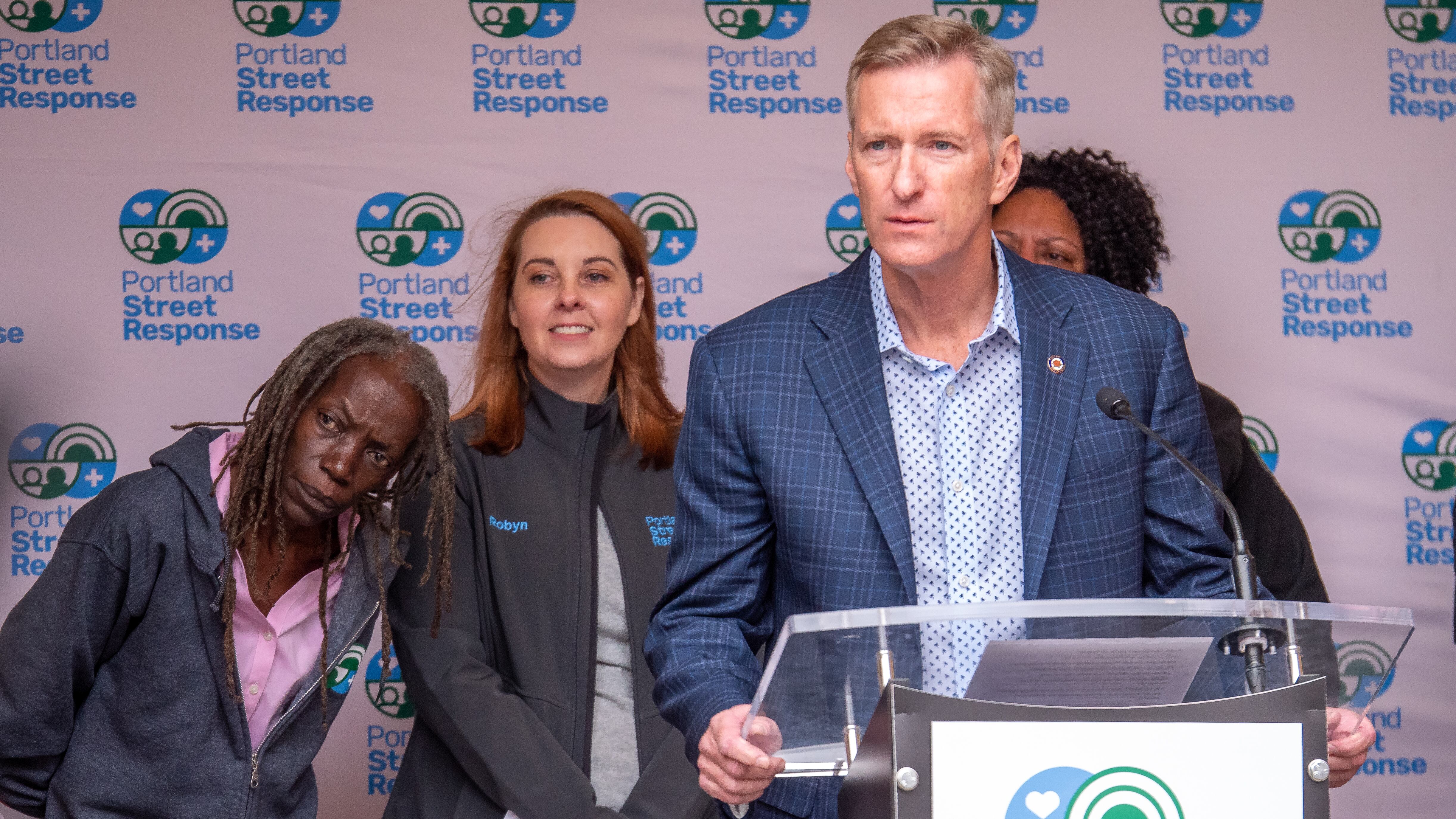Portland’s checkbook looks better than its streets.
Mayor Ted Wheeler this week unveiled his proposed budget for the 2022-23 fiscal year, which begins July 1, with tax revenues and other resources totaling $6.7 billion, up from $6.5 billion this year. For the first time in two years, Wheeler isn’t asking agencies for big cuts to balance the city’s budget.
Portland’s finances are getting a lift from $104 million in federal money coming from the American Rescue Plan Act, which President Joe Biden signed in March 2021. The city’s finances got another boost in April from better-than-expected business tax revenues, giving Wheeler an extra $35 million to spend on discretionary items. (Companies in Portland with revenue of $50,000 or more pay a license tax of 2.6% of their net income.)
Wheeler proposes spending some of the extra $35 million on “equity investments,” including $300,000 to study a waterfront “legacy project” for Indigenous people, and $1 million for the Albina Vision Trust to help the group develop a master plan for the historically Black neighborhood of Albina and to buy land for development in the Rose Quarter.
Wheeler directs another $1.6 million of the windfall to reducing crime. He wants to pay overtime to officers so they can clear a backlog of investigations. He proposes tackling car theft, which spiked in 2021, by “educating Portlanders on the makes and models of most commonly stolen vehicles” and by offering coupons for “The Club”-type theft-prevention devices to latch on steering wheels.
Wheeler proposes allocating some of the extra money to climate change, including $450,000 to hire three employees to “establish performance and accountability systems for the city’s climate action and sustainability plans.”
City Auditor Mary Hull Caballero criticized the Portland Clean Energy Community Benefits Fund earlier this year for tying its climate and equity goals to the city’s Climate Action Plan, which expired in 2020, leaving PCEF without benchmarks for progress.
But such allocations come from the $35 million of extra money. Much of the city’s funding is restricted to specific uses, including revenue from services like water, fees for using parks, and revenue from licensing. Just 10% of the coming year’s $6.7 billion can be allocated in ways that Wheeler and the Portland City Council choose. Elected officials make their mark with those “general funds,” including the $35 million.
This year, the general fund totals $622 million, and about $442 million under Wheeler’s proposal would go to police, fire and rescue, parks, and the Joint Office of Homeless Services.
In a move that cheered City Commissioner Jo Ann Hardesty, Wheeler proposed spending $11.5 million so that Portland Street Response, the unarmed first responders to citizens suffering mental health crises, can operate citywide 24 hours a day, seven days a week.
“I’m extremely grateful that Mayor @tedwheeler is prioritizing funding the 24/7 citywide expansion of Portland Street Response in his proposed budget,” Hardesty tweeted. “Now is a time when Portland must invest in a holistic, expanded system of community safety and this is a historic step.”
Wheeler said he focused on four primary areas when constructing his general fund budget: community safety, livability, homelessness, and economic recovery.
On public safety, Wheeler proposes spending $2.9 million to add five more 911 dispatchers and expand the city’s 311 non-emergency service to 24/7 operation. He proposes spending $10.2 million on the Office of Violence Prevention to confront Portland’s pandemic of gun violence.
On homelessness, Wheeler allocates $36 million for the city’s pod clusters for homeless people, including $28 million for safe rest villages (none of which has opened yet). He earmarks $5 million to maintain affordable housing units that are expiring soon and directs $5.5 million to the Portland Housing Bureau to acquire parcels of land for up to 400 affordable housing units.
As for livability, Wheeler allocates $2.2 million to clean up graffiti and $1.25 million to pick up trash. He directs $9.2 million to repair the Mt. Scott Community Center and redevelop O’Bryant Square, the brick-lined park near downtown that’s known as “Paranoid Park.”
And there’s another $4.7 million to repave Southeast Division Street.
The mayor’s budget now goes to the City Council for approval, likely within a month.
Sophie Peel contributed reporting to this story.

